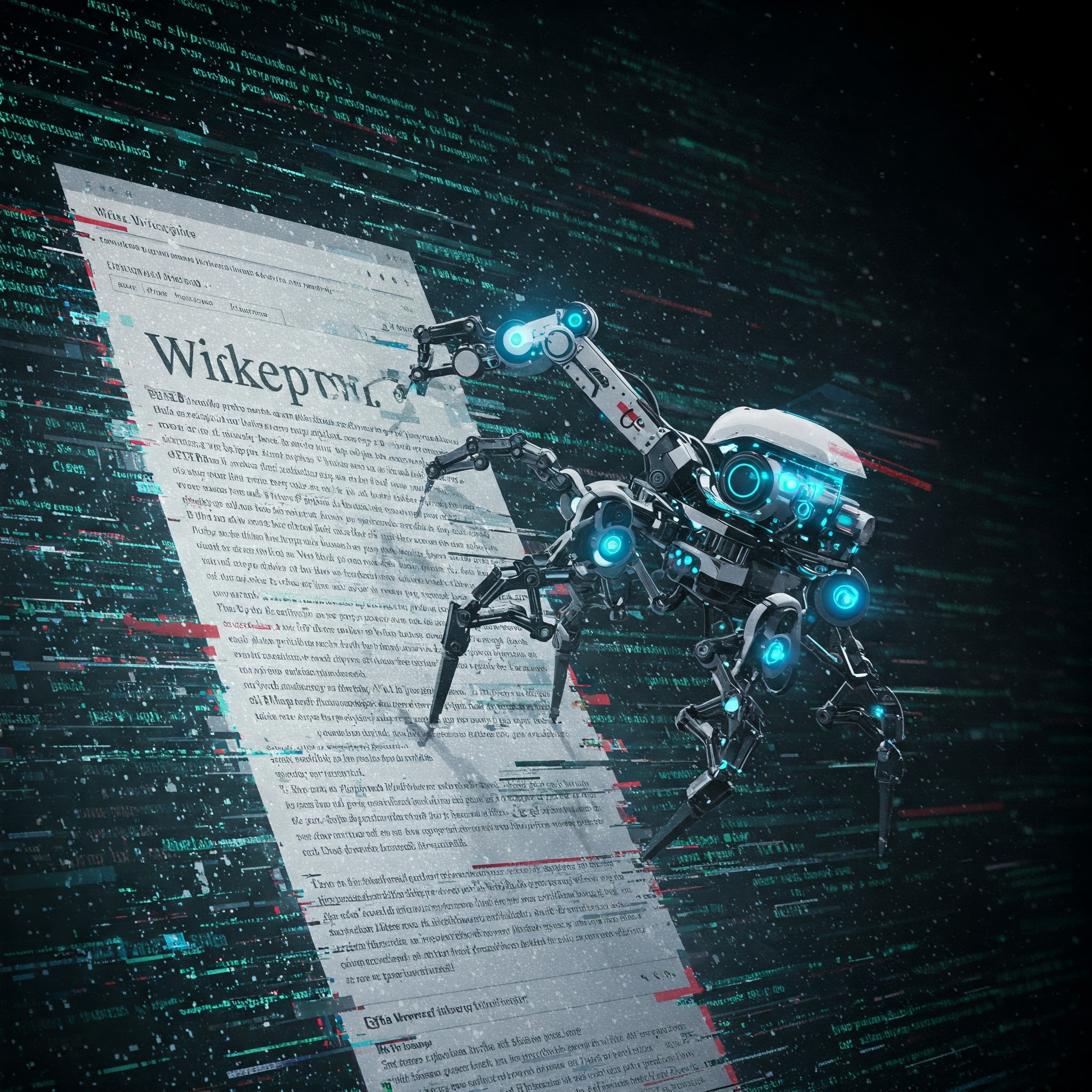Introduction
As AI models become more powerful and data-hungry, they are increasingly relying on publicly available sources like Wikipedia to fuel their training. However, this growing appetite for information is now creating an unexpected bottleneck. Wikipedia, the go-to free encyclopedia of the internet, is facing significant strain on its servers due to large-scale data scraping by AI companies and developers.
The Growing Burden of AI Scraping
Wikipedia has long been a favored target for data collection due to its comprehensive, crowd-sourced, and structured knowledge base. With the rise of large language models (LLMs) like GPT, LLaMA, and Claude, the demand for high-quality text data has surged. Many of these models use Wikipedia extensively during their training phases.
Unfortunately, instead of downloading existing open datasets or using mirrored versions, some AI scrapers are now directly hammering Wikipedia’s servers with high-frequency requests. These scraping bots simulate thousands of readers at once, leading to server slowdowns and increased maintenance costs for the Wikimedia Foundation.
Why It’s a Problem
Unlike commercial tech giants, Wikipedia operates as a non-profit supported by donations. It is not built to handle heavy, automated traffic from web crawlers running around the clock. The problem isn’t just technical; it’s also ethical. When AI models profit off open content like Wikipedia without contributing back, it raises questions about fairness and digital sustainability.
The situation mirrors broader concerns across the web, where AI systems are quietly harvesting vast amounts of content without regard for the hosting site’s capacity or consent. In Wikipedia’s case, this is particularly troubling because it jeopardizes the very infrastructure of a globally shared knowledge resource.
Wikimedia’s Response and Concerns
The Wikimedia Foundation has acknowledged the issue and is exploring ways to mitigate the strain. Some steps being considered include:
- Rate limiting and blocking aggressive bots
- Offering dedicated API access with restrictions
- Partnering with AI companies to ensure responsible data use
However, enforcing these measures is difficult. Identifying and stopping unauthorized scraping requires sophisticated monitoring systems. Moreover, the Foundation must strike a balance between openness and sustainability.
The AI Community’s Responsibility
AI companies—especially those with commercial interests—have a responsibility to access data ethically. Wikipedia’s content is freely available under a Creative Commons license, but that doesn’t mean it should be misused. Developers should consider:
- Using official data dumps provided by Wikimedia
- Scheduling requests to avoid server overload
- Financially supporting platforms they depend on
A handful of AI firms have started engaging in talks with Wikimedia to establish more sustainable data-sharing practices. Some are even donating or contributing infrastructure support as part of community givebacks.
The Bigger Picture
This issue reflects a larger trend in the AI era: the web wasn’t built for automated super-consumers. From social media sites to academic journals, many platforms are now grappling with how to protect their digital assets while staying open to genuine users. Wikipedia is just the canary in the coal mine.
Without proactive strategies, unrestricted scraping could compromise not only server uptime but also the integrity of the data itself. Already, some editors worry that AI-driven usage may influence editing patterns, article tone, or even content manipulation.
Conclusion
AI scraping is putting unexpected pressure on one of the internet’s most valuable and beloved public resources. Wikipedia’s situation is a call to action for both developers and organizations: data may be free, but infrastructure isn’t. If the AI community wants to continue benefiting from platforms like Wikipedia, it must do so responsibly.
As the AI boom continues, partnerships, policies, and platform-level protections will be crucial to keeping the internet’s knowledge backbone strong and sustainable for everyone.
